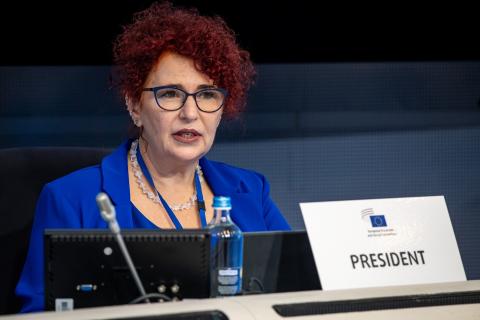European Economic
and Social Committee
EESC President calls for clear priorities to be set to help Europe navigate stormy seas
The latest economic forecasts show pressing challenges for Europe, with weakened economic growth and inflation remaining at high levels. In order to successfully address them, the Commission's 2023 Work Programme must prioritise the EU's recovery and mitigating the economic, social and societal impacts of the war in Ukraine and the resulting energy crisis.
European employers, workers and society at large have already been severely hit by the pandemic. The current crisis caused by Russia's unprovoked invasion of Ukraine is yet another massive shock for society across Europe, and is mainly being felt by the most vulnerable. Solidarity and social convergence must continue to underpin the upcoming EU policies.
The EESC believes that in order to avoid drastic economic and social consequences, EU energy policy must be realistic. It should be geared towards building the Energy Union and achieving the climate goals without putting an extra burden on vulnerable consumers and on workers, and do so without undermining the competitiveness of European businesses. The EU must continue fighting climate change and working to meet the climate objectives, while ensuring the stability and security of its energy supply at a cost that is affordable for businesses and households.
To counter the negative economic and social repercussions of the war in Ukraine, the EU Member States must have appropriate fiscal space. Against this backdrop, the need to revise the EU economic governance framework has become even more pressing.
Research, innovation and skills are fundamental for Europe in successfully shaping its future. For this reason, the EESC welcomes the announcement that 2023 will be the European Year of Skills. We call, in particular, for continuous development to increase high-level talent and enhance citizens and workers' skills and competences to ensure that we can fully seize the opportunities provided by digitalisation and better manage the related risks.
Both the pandemic and the war have clearly created instability; but at the same time they have also underlined the power and importance of organised civil society in combating the consequences of the crises and helping people on the ground. The EESC therefore urges the Commission to give more recognition to the importance of civil society organisations by giving them a prominent place in EU policy. It is clearly imperative that the follow-up to the Conference on the Future of Europe delivers tangible results, and this must include better involvement of organised civil society.
